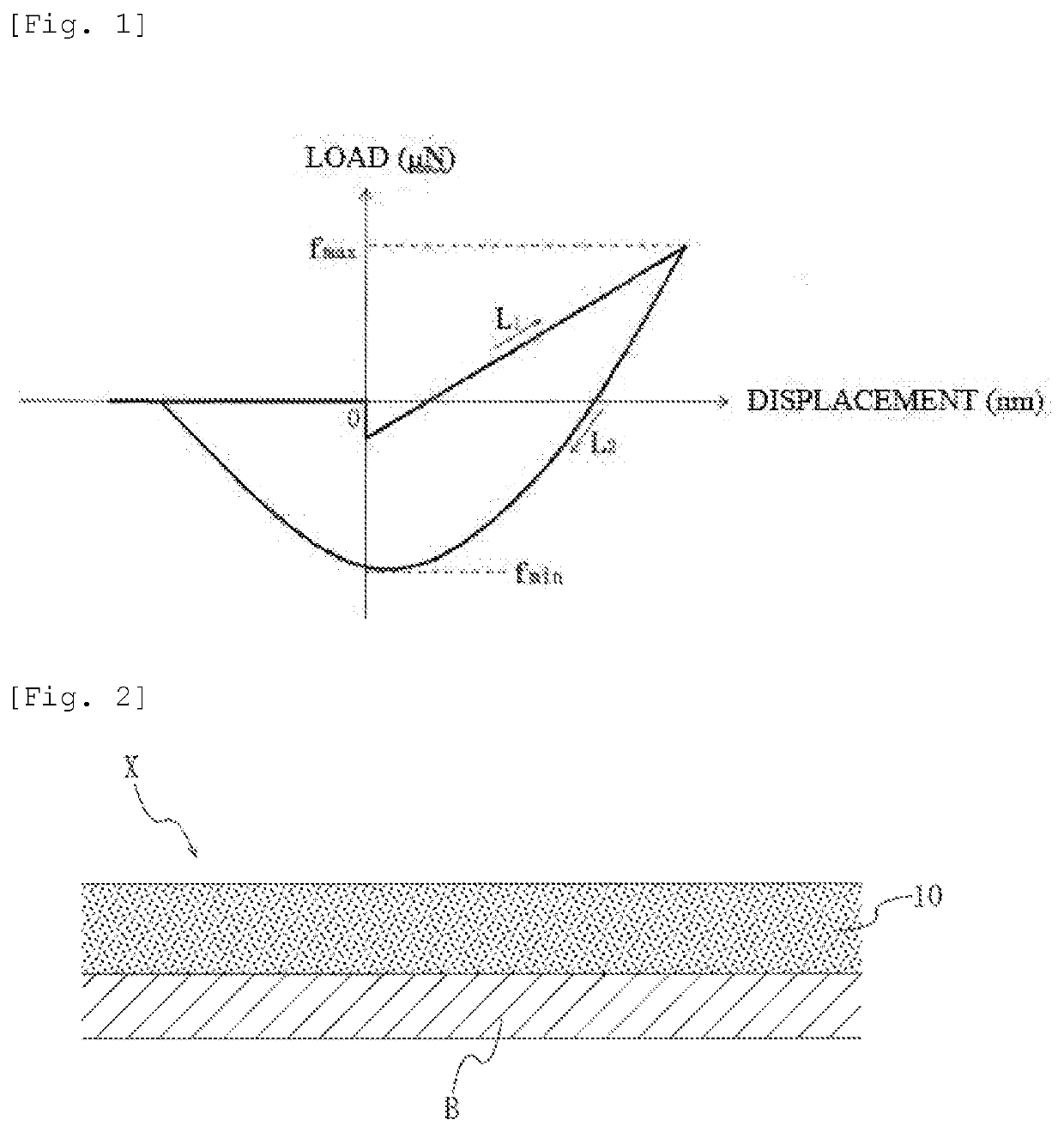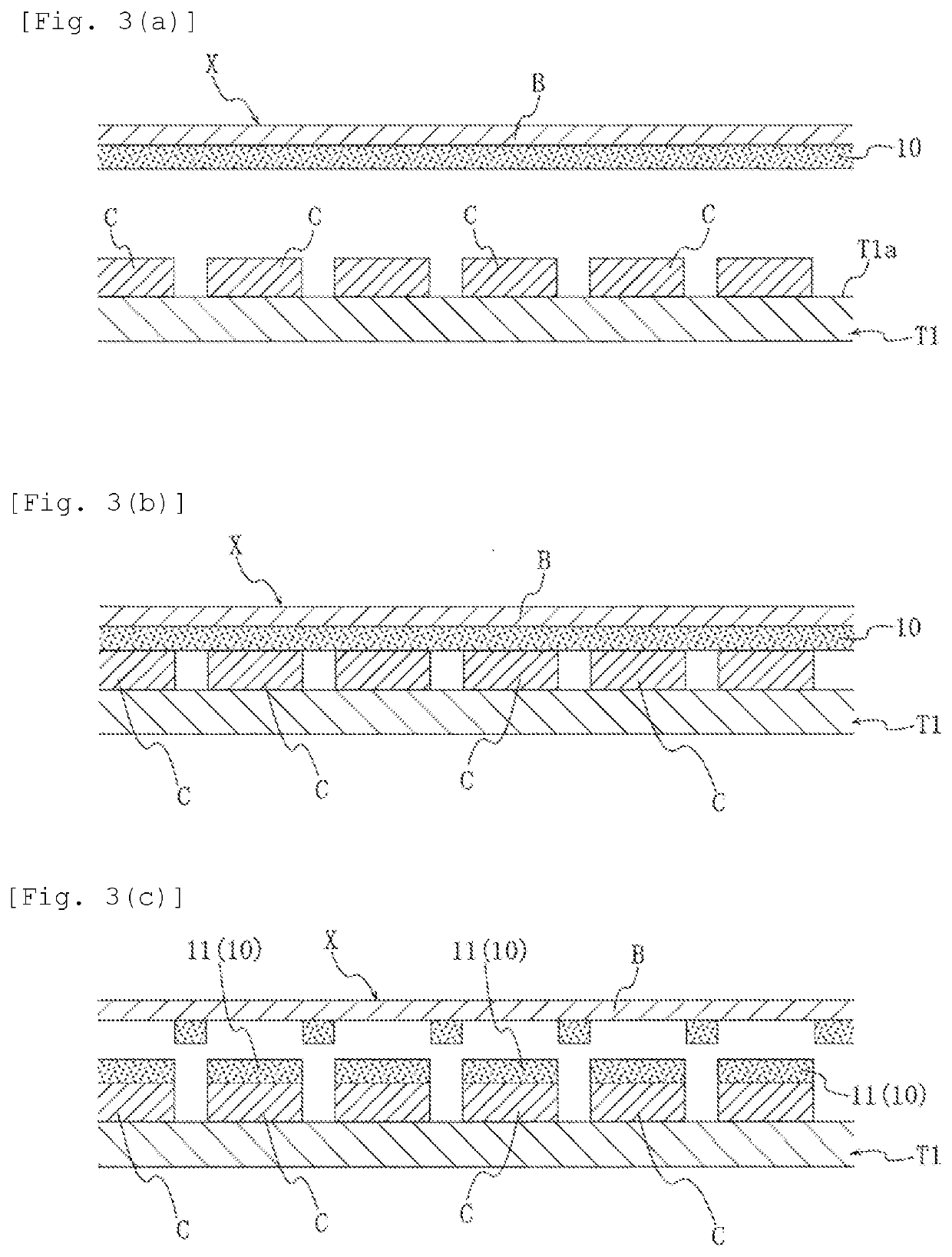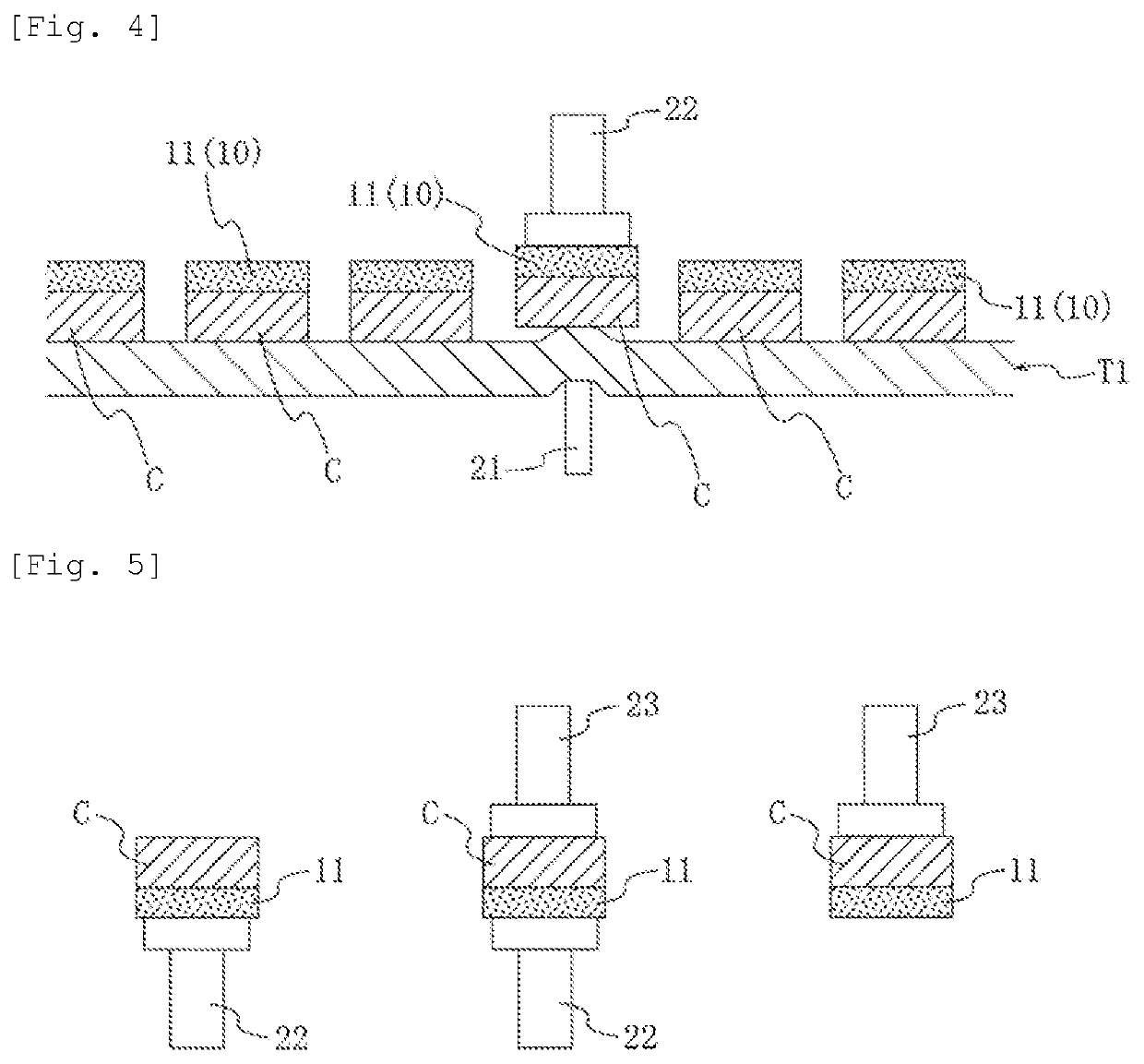Sheet for sintering bonding and sheet for sintering bonding with base material
a technology for sintering bonding and sheet, which is applied in the direction of film/foil adhesives, other domestic articles, non-macromolecular adhesive additives, etc., can solve the problem that power semiconductor devices often generate a large amount of heat, and achieve the effect of convenient handling
- Summary
- Abstract
- Description
- Claims
- Application Information
AI Technical Summary
Benefits of technology
Problems solved by technology
Method used
Image
Examples
example 1
[0079]By using a hybrid mixer (trade name: “HM-500”, manufactured by Keyence Corporation) at its stirring mode, 56.51 parts by mass of a silver particle as a sinterable particle P1, 0.82 parts by mass of a polycarbonate resin as a high molecular binder (a thermally decomposable high molecular binder) (trade name: “QPAC 40”, the weight average molecular weight is 150000, solid at ordinary temperature, manufactured by Empower Materials), 3.29 parts by mass of isobornyl cyclohexanol as a low molecular binder (a low boiling point binder) (trade name: “Terusolve MTPH”, liquid at ordinary temperature, manufactured by NIPPON TERPENE CHEMICALS, INC.), and 39.38 parts by mass of methyl ethyl ketone as a solvent were mixed to prepare a varnish. The stirring time was set to be 3 minutes. The above silver particle as the sinterable particle P1 comprises the first silver particle (the average particle diameter: 60 nm, manufactured by DOWA Electronics Materials Co., Ltd.) and the second silver pa...
example 2
[0080]A sheet for sintering bonding of Example 2 was made in the same manner as the sheet for sintering bonding of Example 1 except that the amount of the sinterable particle P1 to be compounded was changed from 56.51 parts by mass to 56.25 parts by mass; the amount of the polycarbonate resin (trade name: “QPAC 40”, manufactured by Empower Materials) to be compounded was changed from 0.82 parts by mass to 2.16 parts by mass; the amount of isobornyl cyclohexanol (trade name: “Terusolve MTPH”, manufactured by NIPPON TERPENE CHEMICALS, INC.) to be compounded was changed from 3.29 parts by mass to 2.16 parts by mass; and the amount of methyl ethyl ketone to be used was changed from 39.38 parts by mass to 39.43 parts by mass. With respect to the sheet for sintering bonding of Example 2, the content of the sinterable particle is 93.2% by mass, and the thickness is 57 μm.
example 3
[0081]A sheet for sintering bonding of Example 3 was made in the same manner as the sheet for sintering bonding of Example 1 except that 63.36 parts by mass of a copper particle as a sinterable particle P2 (the average particle diameter: 200 nm, manufactured by MITSUI MINING & SMELTING CO., LTD.) was used instead of 56.51 parts by mass of the sinterable particle P1; the amount of the polycarbonate resin (trade name: “QPAC 40”, manufactured by Empower Materials) to be compounded was changed from 0.82 parts by mass to 5.43 parts by mass; the amount of isobornyl cyclohexanol (trade name: “Terusolve MTPH”, manufactured by NIPPON TERPENE CHEMICALS, INC.) to be compounded was changed from 3.29 parts by mass to 6.11 parts by mass; and the amount of methyl ethyl ketone to be used was changed from 39.38 parts by mass to 25.1 parts by mass. With respect to the sheet for sintering bonding of Example 3, the content of the sinterable particle is 84.6% by mass, and the thickness is 53 μm.
PUM
| Property | Measurement | Unit |
|---|---|---|
| shear strength | aaaaa | aaaaa |
| vertical velocity | aaaaa | aaaaa |
| vertical velocity | aaaaa | aaaaa |
Abstract
Description
Claims
Application Information
 Login to View More
Login to View More - R&D
- Intellectual Property
- Life Sciences
- Materials
- Tech Scout
- Unparalleled Data Quality
- Higher Quality Content
- 60% Fewer Hallucinations
Browse by: Latest US Patents, China's latest patents, Technical Efficacy Thesaurus, Application Domain, Technology Topic, Popular Technical Reports.
© 2025 PatSnap. All rights reserved.Legal|Privacy policy|Modern Slavery Act Transparency Statement|Sitemap|About US| Contact US: help@patsnap.com



